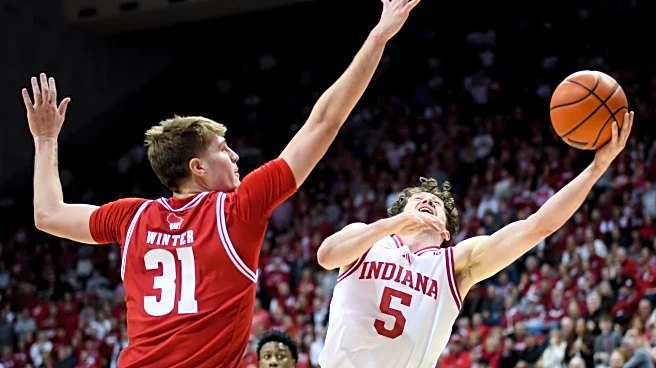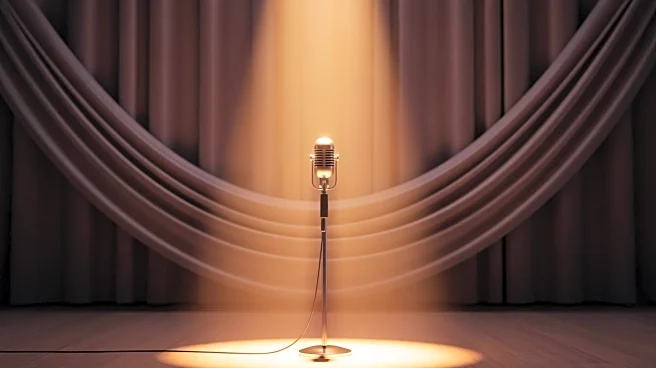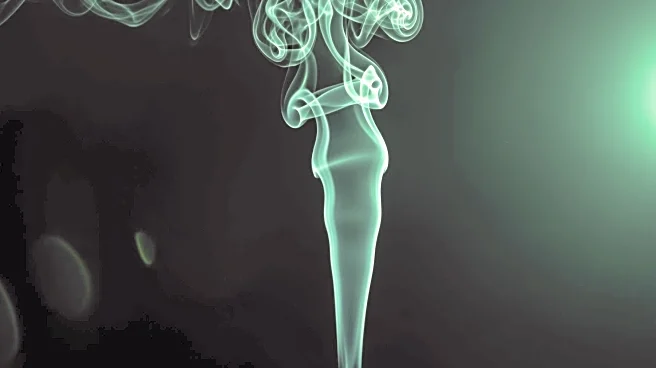What is the story about?
What's Happening?
Julia Roberts, during the Venice Film Festival press conference for Luca Guadagnino's film 'After the Hunt,' expressed concerns about the diminishing art of conversation in society. The film, a psychological drama, revolves around college professor Alma Imhoff, played by Roberts, who faces a personal and professional crisis when a student accuses a colleague of assault. Roberts emphasized that the film is designed to provoke debate and reflection, encouraging viewers to engage in discussions about their beliefs and convictions. The film's narrative complexity, crafted by screenwriter Nora Garrett, is intended to stir emotions and challenge perspectives, according to Roberts.
Why It's Important?
The significance of Roberts' remarks lies in the broader cultural context of communication and dialogue in contemporary society. As digital communication becomes more prevalent, the traditional art of conversation is perceived to be waning. 'After the Hunt' aims to counter this trend by fostering discussions and reflections among its audience. The film's exploration of complex themes such as personal crises and ethical dilemmas may resonate with viewers, prompting them to reconsider their views and engage in meaningful conversations. This could have implications for how films are used as tools for social engagement and discourse.
What's Next?
The film 'After the Hunt' is set to premiere at the Venice Film Festival, with its release scheduled for October 17 by Amazon MGM Studios. The reception of the film and its impact on audiences will be closely watched, particularly in terms of its ability to stimulate conversation and debate. Stakeholders in the film industry may observe how the film's themes and Roberts' advocacy for dialogue influence public discourse and potentially inspire similar projects that prioritize narrative complexity and audience engagement.
Beyond the Headlines
The film's focus on conversation and debate may also highlight ethical and cultural dimensions, particularly in the context of academia and professional environments. The storyline involving accusations of assault and the revelation of past secrets could spark discussions on accountability, power dynamics, and the importance of transparency. These themes may contribute to ongoing dialogues about societal norms and the role of media in shaping public perceptions.
















